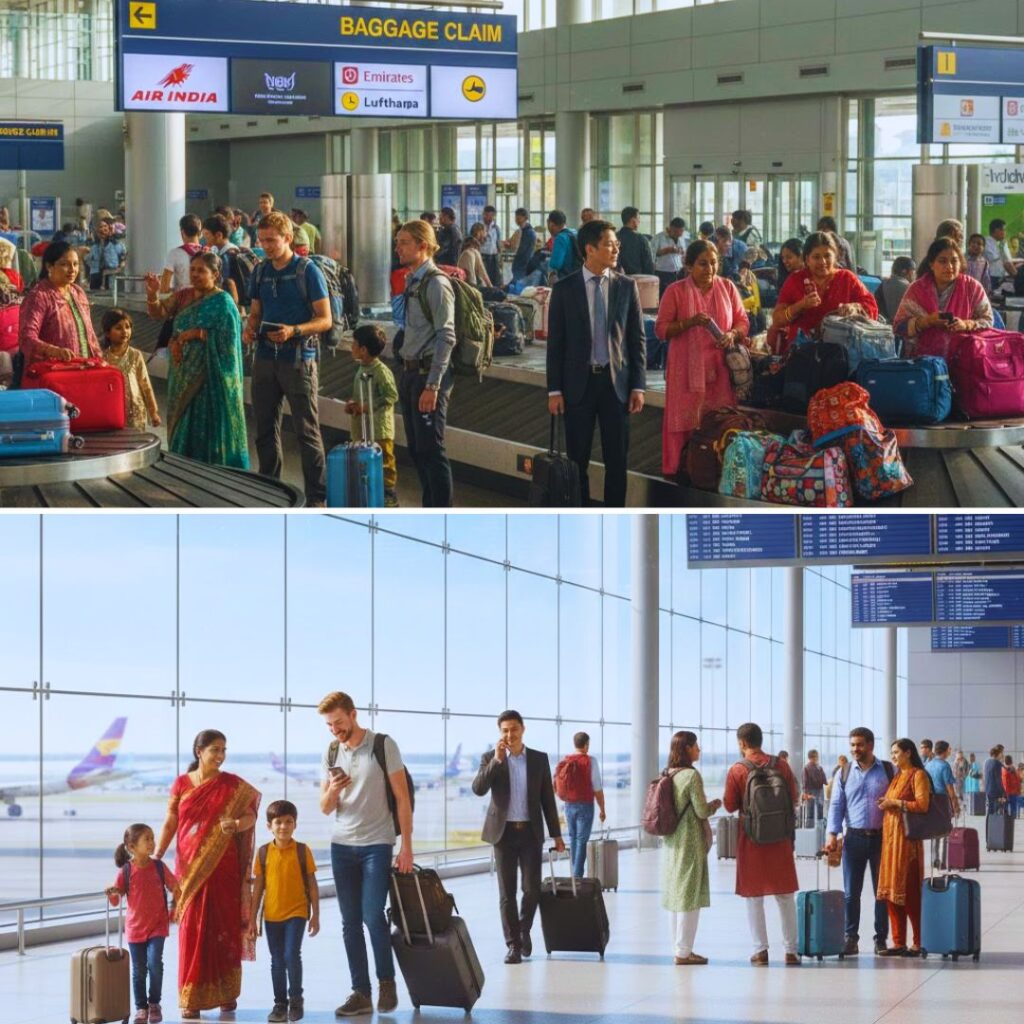A Delhi-bound IndiGo flight from Mumbai was delayed by over an hour on September 6 after one of its pilots reportedly fell unconscious in the cockpit just before take-off. The pilot’s collapse was suspected to be caused by a food allergy.
The pilot was rushed to hospital and underwent multiple medical tests, including an electrocardiogram, which confirmed that his heart condition was normal. An alternate pilot was arranged to operate the Airbus A320 Neo flight, which eventually departed and landed in Delhi at 2.23 p.m., instead of its scheduled arrival at 1.37 p.m.
Details of the Incident and Official Reactions
The flight 6E 6827 experienced a delay of one hour and 13 minutes at Mumbai’s Chhatrapati Shivaji Maharaj International Airport. Sources revealed that the pilot started sweating profusely and collapsed moments before departure. IndiGo confirmed the incident and assured passengers’ safety by quickly replacing the affected pilot, allowing the flight to resume.
A spokesperson stated, “We arranged for an alternate pilot to operate the flight. The safety and well-being of our passengers and crew members remain our utmost priority.” The affected pilot was hospitalised but has since been discharged and reported to be stable.
Context: Growing Concerns Over Pilot Health
This is the third reported case in just over two months of pilots falling ill mid-duty in Indian skies. Previous incidents include another IndiGo pilot collapsing during a Delhi–Pune flight in July and an Air India pilot experiencing a health scare mid-flight on a Bengaluru–Delhi route.
Aviation experts warn that factors such as prolonged working hours, high stress levels, irregular sleep patterns, and occupational pressures may contribute significantly to such health events. With India’s aviation industry expanding rapidly, there is growing urgency to prioritise pilot health through enhanced medical screenings, crew wellness programmes, and regulated work-rest cycles.
Enhancing Pilot Safety: New Measures and Challenges
The aviation industry has increasingly recognised the critical importance of pilot health and safety, as a well-rested and medically fit pilot is fundamental to flight security. In response to rising incidents of pilot fatigue and health issues, the Directorate General of Civil Aviation (DGCA) introduced new regulations in 2025 that mandate pilots to have a minimum of 48 hours rest per week, up from the previous 36 hours. This revision aims to reduce fatigue and ensure pilots are alert for their duties, especially during night flights or challenging weather conditions.
IndiGo and other airlines have started reinforcing pilot safety through additional health monitoring, scenario-based simulator training, and stress management programmes. However, challenges remain in balancing operational demands with sufficient rest periods. Rapid expansion of the airline fleet and routes often places immense pressure on pilots, increasing risks of fatigue-related incidents. Continuous investment in crew welfare, transparent reporting of pilot health concerns, and adherence to updated safety protocols will be essential to safeguard the well-being of those at the helm of India’s skies.
The Logical Indian’s Perspective
The recent chain of incidents involving pilots falling ill while on duty is a wake-up call that underscores the critical need to uphold rigorous health and safety protocols in aviation. Pilots carry the immense responsibility of passengers’ lives, and their well-being must never be compromised in the race for tight schedules or operational efficiency.
Airlines and regulatory bodies must work transparently and proactively to strengthen health monitoring systems, ensure adequate rest, and provide necessary support for crew members. Public trust in air travel is dependent on these vital safeguards.













